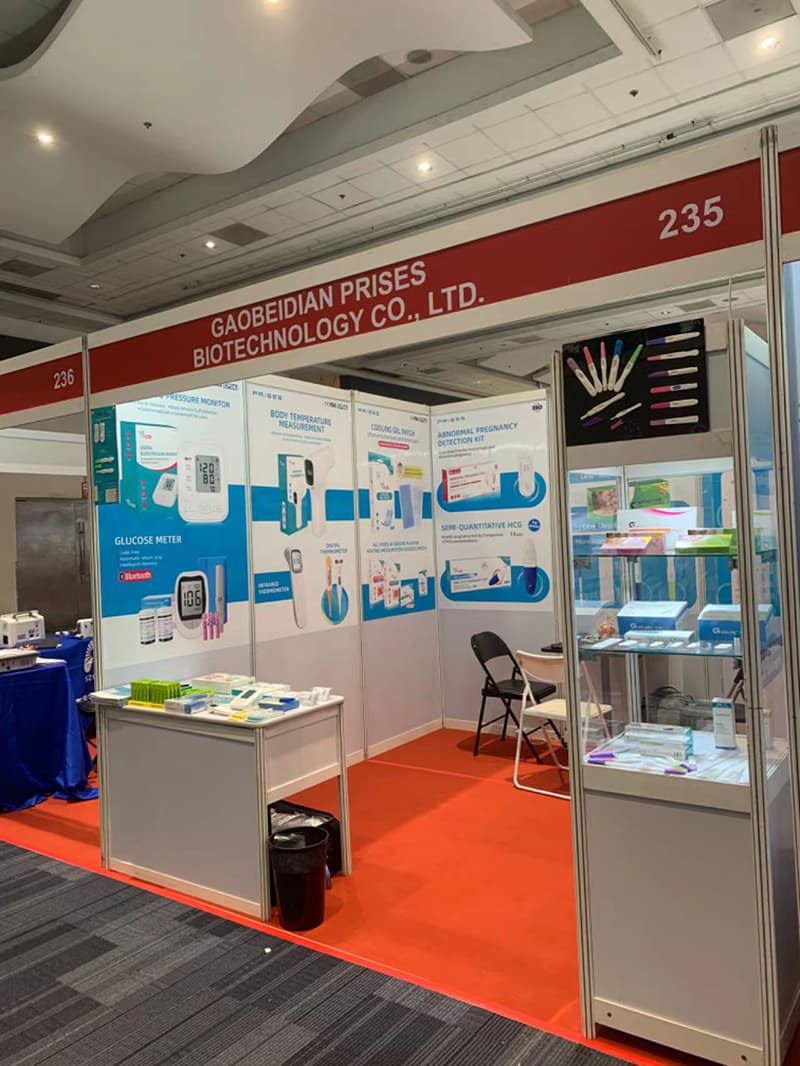Dec . 12, 2024 11:20 Back to list
buy hepatitis c in blood test suppliers
Understanding the Importance of Hepatitis C Blood Test Suppliers
Hepatitis C is a viral infection that primarily affects the liver, leading to severe liver diseases including cirrhosis and liver cancer. It is crucial for individuals to get tested for hepatitis C, especially if they fall into high-risk categories, such as those with a history of intravenous drug use, unprotected sex with multiple partners, or exposure to contaminated needles. The accuracy and reliability of hepatitis C testing significantly depend on the quality of the testing supplies provided by suppliers in the market.
When discussing hepatitis C blood test suppliers, it is important to highlight various aspects that contribute to effective testing practices. The suppliers are responsible for providing high-quality testing materials, including blood test kits and reagents, which are essential for accurate diagnosis. This article will explore the significance of selecting reputable hepatitis C blood test suppliers, the types of tests available, and the implications of these tests on public health.
Quality of Testing Supplies
Selecting the right suppliers for hepatitis C testing is paramount. Reputable suppliers ensure that their products meet international quality standards. These standards not only encompass the safety of the reagents and kits but also ensure that they deliver accurate and reliable results. A high-quality hepatitis C test kit typically includes components such as antibodies, antigens, and control samples that help in determining the presence of the virus in the blood.
Additionally, suppliers should provide comprehensive instructions for use, storage conditions, and interpretative guidelines to ensure that healthcare providers can perform tests efficiently. Manufacturers must invest in research and development to produce sophisticated tools and techniques that enhance the accuracy of hepatitis C tests, from enzyme-linked immunosorbent assays (ELISA) to polymerase chain reaction (PCR) tests.
Types of Hepatitis C Tests
buy hepatitis c in blood test suppliers

There are several types of tests available for hepatitis C, and suppliers play a crucial role in distributing these tests to laboratories and healthcare providers. The most common initial test is the antibody test, which checks for the presence of antibodies produced in response to the hepatitis C virus. If the antibody test is positive, further confirmation is typically required through a nucleic acid test (NAT) to check for the actual virus in the bloodstream.
Additionally, there are genotype tests available that help determine the strain of the virus present in an individual. This information is crucial as it informs the treatment protocol, allowing healthcare providers to tailor the approach based on the virus genotype. Suppliers must ensure they have a range of tests to meet various clinical needs, bridging the gap between initial screening and comprehensive diagnosis.
Implications for Public Health
The role of hepatitis C blood test suppliers extends beyond providing testing materials; it significantly impacts public health outcomes. Early detection of hepatitis C can lead to timely intervention, preventing the progression of the disease and reducing transmission rates. Moreover, access to reliable testing supplies supports effective screening programs in communities, particularly in high-risk populations.
As the global burden of hepatitis C continues to pose a significant health challenge, it is imperative to promote awareness about the importance of testing. Suppliers can contribute to this effort by providing educational materials alongside their products, ensuring that healthcare providers and patients understand the significance of testing and the implications of results.
In conclusion, hepatitis C blood test suppliers are a critical component in the healthcare landscape. The quality and reliability of the testing supplies they offer directly influence the diagnosis and management of the disease. By providing accurate tests and extensive support, suppliers play an essential role in improving public health outcomes and in combating the hepatitis C epidemic. It is essential for healthcare systems to ensure they are sourcing their testing supplies from reputable suppliers to safeguard the health of individuals and communities alike. Investing in quality testing not only facilitates accurate diagnosis but also paves the way for effective treatment and eradication strategies against hepatitis C.
-
Malaria PF / PAN AG Rapid Test – Accurate & Fast Malaria Diagnosis
NewsJul.22,2025
-
Accurate LH Ovulation Test Strips for Easy Fertility Tracking
NewsJul.21,2025
-
Rapid Influenza A/B Antigen Test Kit | Fast & Accurate Diagnostic Solution
NewsJul.20,2025
-
Dengue NS1 Rapid Diagnostic Test Kit
NewsMar.07,2025
-
Dengue NS1 Rapid Diagnostic Test Kit
NewsMar.07,2025
-
Dengue NS1 Rapid Diagnostic Test Kit
NewsMar.07,2025

